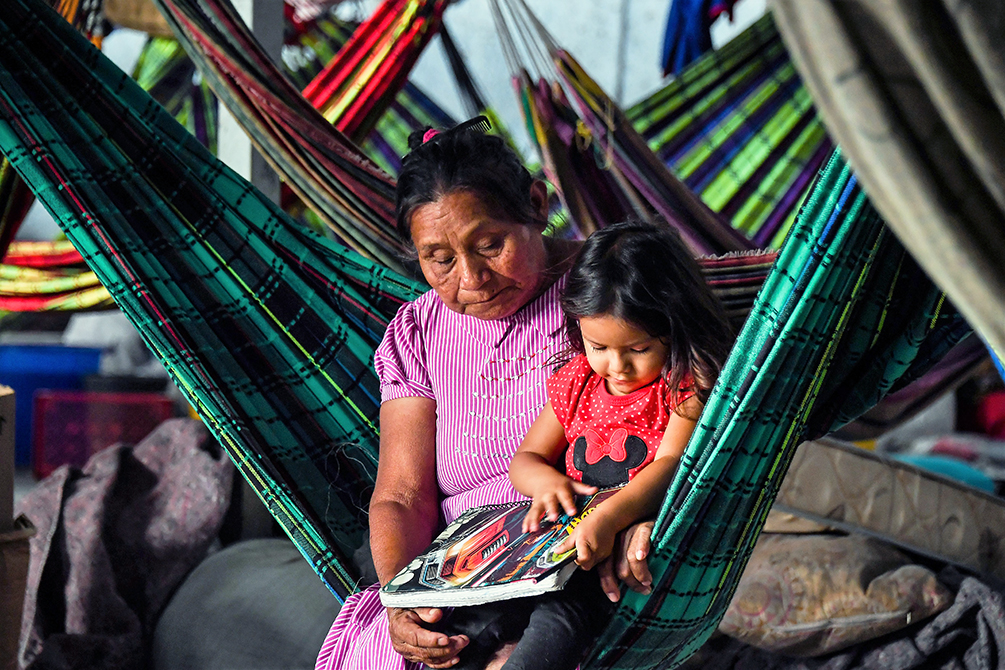The flow of migrants fleeing Venezuela’s severe economic, social, and political crisis might worsen in 2020, said Eduardo Stein, Joint Special Representative for Venezuelan Refugees and Migrants for the United Nations High Commissioner for Refugees (UNHCR), on October 28.
During a speech at the International Solidarity Conference held in Brussels, Belgium, Stein regretted that the situation “continues without abating,” adding that Venezuelan migrants might reach 6.5 million, so “challenges will be much greater” in terms of humanitarian assistance, due to the large migratory increase.
“The Latin American and Caribbean region is facing an unprecedented situation. The extent and complexity of the crisis have global repercussions, including for the European continent, and it might even jeopardize the current stability,” Stein said.
Latest studies show that more than 4.5 million people have fled Venezuela amidst the severe crisis affecting all sectors in the country.
The event in Brussels addressed the severe migratory crisis in Venezuela and how the situation affects Latin America and other countries in the world that are welcoming Venezuelan refugees.
Stein stressed the importance of continuing to “identify the problems” and to “reinforce international aid.”
Despite the efforts to promote international aid, the situation continues to be serious, said Stein, warning that the “population will become even more vulnerable.”
“There is no sign that this will end, according to the office of the United Nations High Commissioner for Refugees, so this situation of vulnerability to which they might be exposed is a serious concern,” he said.
He said that there were cases of “exploitation, abuse, family separation, and in particular, unaccompanied children,” He also pointed out that “the situation of walking migrants is of great concern due to the long distances” traveled.
Stein added that “there are aspects such as health, employment, and education” that some countries in the region see being compromised due to the increased influx of Venezuelan migrants.

European Union Commissioner for Humanitarian Aid and Crisis Management Christos Stylianides said that the European body is closely following the situation in Venezuela and that this kind of meeting will help the international media highlight this serious crisis.
“The Venezuelan crisis is not in the headlines, and that’s what we are trying to remedy; we want the world to know, to show solidarity toward Venezuelans who have had to leave their homes. We have them in our thoughts,” he said.
Stylianides said that the European Union is “the main investor in Latin America,” so it is in their greatest interest to help end the crisis.
William Spindler, UNHCR spokesperson for Venezuelan migrant refugees in Latin America, said in an interview with Voice of America that “if this tendency continues to increase at the current pace,” the record number of Venezuelan migrants would become “the largest crisis of displaced people in the world.”
UNHCR has asked to double funds for Venezuela
According to Spindler, this kind of meeting with representatives of international organizations is “very important” to highlight the situation of millions of Venezuelans.
In 2019, UNHCR requested $743 million to face the humanitarian crisis, and twice as much was requested for the coming year, where the funds will go to “all the organizations that are responding to this situation,” Spindler said.
“It’s an invisible crisis; despite being the second largest in the world, it’s not well known outside Latin America, precisely because Venezuelan migrants have been welcomed by Latin American countries in a very generous, fraternal, and sympathetic way,” he said.
He pointed out that one of the main problems is that “the international community doesn’t know the extent or magnitude of this crisis.”
“We are trying to convey this message: that many of these countries, although they are middle-income countries, such as Colombia, Ecuador, or Brazil, need support, because they already have their own pre-existing needs, so they need more support to continue to receive and absorb the migrant influx,” he said.









